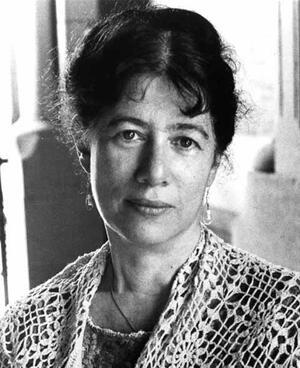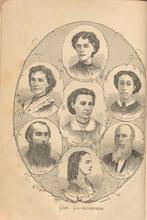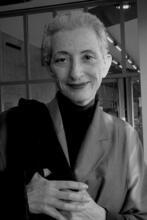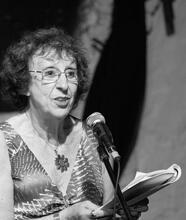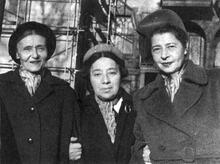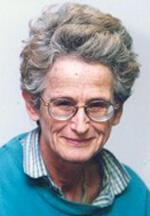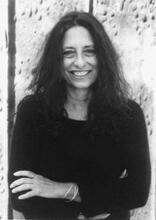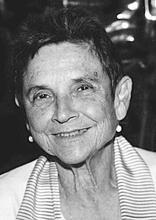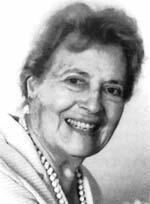Rosellen Brown
In her fiction, Rosellen Brown confronted themes of alienation, responsibility for others, and racial tension in America. After college, Brown joined a program through Brandeis’ Woodrow Wilson fellowship to teach at the predominantly black Tougaloo College in Mississippi. There, she wrote her first collection of poetry, Some Deaths in the Delta, followed by a story cycle, Street Games, which explored the racial tensions of a poor Brooklyn neighborhood. In 1984, Brown wrote the popular and acclaimed Civil Wars, about two civil rights activists who adopt their bigoted, orphaned niece and nephew. Brown also taught at the University of Houston before joining the faculty of the MFA program at the School of the Art Institute of Chicago and teaching at the Spoleto Writers’ Workshop in Italy.
“There are as many kinds of chemistry at work between writers and their subjects as there are between potential lovers,” writes Rosellen Brown, an observation indicative of the passion and insight she brings to the page as a poet, essayist, and fiction writer. Keenly interested in how people live their lives, and in how the inner realm meshes with the outer world, Brown is particularly sensitive to the plights of the displaced and the alienated. Her attunement to the ordeals and consequences of loneliness, exile, and disfranchisement is born of her own peripatetic life and her experiences as a Jewish woman living in non-Jewish communities.
A free spirit
Although Brown grew up without a sense of connection to place, she was anchored by the traditions of Jewish life and by her “polymorphous perverse pleasure in language,” which inspired an early love of both reading and writing. Brown found a home and a holdfast in the written word, cultivating a profound and abiding belief in the illuminating power of literature. Add to that a strong social conscience, free-flowing empathy, and a commitment to seeking the truth, and Brown emerges as a Jewish American writer who fearlessly explores controversial questions of injustice and responsibility. Often demanding, always meticulous and lyrical, her work eschews the mindless comfort of easy answers, and instead offers a fierce and cathartic beauty.
Named after her grandmother, Rosa, and Eleanor Roosevelt (a clue to her family’s humanitarian politics), Brown was born in Philadelphia, Pennsylvania, on May 12, 1939. Her father, David H. Brown, was born in Jersey City, New Jersey. Her mother, Blossom (Bluma in Yiddish) Lieberman, was a Russian immigrant. Neither attended high school, yet both were well-read and wrote well, and Brown and her two older brothers grew up steeped in literature. New Yorkers who never stayed put, Brown’s parents left Philadelphia ten weeks after she was born, ultimately wandering as far as California. Brown has carried on the family tradition of vagabondage in her adult life, living in places as distinct as the Deep South and New England, developing the acute awareness outsiders must possess in order to survive, and an obsession with the spirit of place, a clarifying focus that informs her entire oeuvre.
Another key facet of Brown’s fiction is her tireless inquiry into what it means to live as an archetypal wandering Jew in post-Holocaust America. Brown began her unsettling exploration into the paradoxical blend of displacement and freedom, rootlessness and privilege that is inherent in modern Jewish life in the novel, The Autobiography of My Mother (1976), a resonant line of inquiry that surfaces evocatively in other works.
Barnard College, marriage, and a move to Mississippi
After graduating from Barnard College with a B.A. in 1960, Brown attended Brandeis University as a Woodrow Wilson fellow, and then met her husband-to-be, Marvin Hoffman. Born in the same year as Brown, Hoffman came from a similarly liberal Jewish working-class family and shared her love of literature. They married in 1963 and, moved by their humanitarian convictions, felt compelled to participate in the civil rights movement. To that end they joined a program established by the Woodrow Wilson fellowship to send its alumni to evolving colleges. Two years later, Brown and Hoffman moved to Mississippi to teach at Tougaloo College, a predominantly black school near Jackson—a decision that set the course for their marriage and their respective vocations. While Brown made a career as a writer, Hoffman continued in the realm of education, becoming founding director of the North Kenwood/Oakland Charter School, an institution sponsored by the University of Chicago.
Brown wrote her first book, the poetry collection Some Deaths in the Delta, while living in Mississippi, thus launching her ongoing quest to decipher the insidious dynamics of racism. In 1967 she had her first child, Adina, a writer who lives in Israel and serves as film critic for the Jerusalem Post. Her second child, Elana, who was born in 1970 in New Hampshire, followed in her father’s footsteps as an educator, directing a peer mediation and conflict resolution program in a high school near Washington, D.C.
Contentious themes in Brown’s work
Even the briefest synopsis of Brown’s dramatic, psychologically authentic, and politically daring books reveal her willingness, or compulsion, to confront complex and volatile issues. Street Games (1974) is a cycle of stories narrated by an unforgettable cast of black, white, and Puerto Rican characters living in a struggling Brooklyn neighborhood. Brown’s highly praised and phenomenally popular third novel, Civil Wars (1984), features an unlikely pair of civil rights activists—wife Jessie, a Jewish New Yorker, and husband Teddy, a renegade liberal Southerner—whose lives are irrevocably altered when they take in Teddy’s spoiled and bigoted nephew and niece after their parents die in a car crash. Finally, in Half a Heart (2000), Miriam, a Jewish liberal trapped in the smothering life of a well-off and pampered Houston matron (Brown and Hoffman lived in Houston from 1982 to 1995), reclaims the daughter she gave up eighteen years earlier during the wrenching dissolution of her controversial relationship with a black professor.
Not only does Brown grapple with racial conflicts, many involving relationships between Jewish Americans and African Americans; she also investigates conundrums of class, gender, geography, and age. In her suspenseful best-seller, Before and After (1992), for instance, a horrendous crime pits a New York Jewish family against the small New England town in which they live, setting off a chain reaction of “outsiders” against “insiders,” teenagers against adults, and wife against husband.
Brown’s legacy
Brown has been honored with awards and fellowships from the American Academy and Institute of Arts and Letters, the Guggenheim Foundation, the Ingram Merrill Foundation, the Bunting Institute, the Howard Foundation, and the National Endowment of the Arts. In 1979 she was awarded a residency at Mishkenot Sha’ananim, Jerusalem’s guesthouse for visiting artists and scholars, and she won the Janet Kafka Prize for best novel by an American woman for Civil Wars. Over the years, Brown has taught creative writing at Goddard College (1976–77), Boston University (1978–79), and the University of Houston (1982–95). She has been writer-in-residence at the University of Michigan and Northwestern University and has been on the faculty of the Spoleto (Italy) Writers’ Workshop from its inception in 1994. Moving to Chicago in 1995, Brown wrote and taught creative writing at the MFA in Writing Program at the School of the Art Institute of Chicago.
Although it has been censured for its vexatious characters and too overt approach to social issues, Brown’s hard-hitting work is critically acclaimed and embraced by the reading public for both its literary finesse and chutzpah. In musing over her motivation for writing, and her books’ reception, Brown says,
What writers need to do is remind people of how complicated everything is. Rather than simplify as news headlines, sound bites, and political speechifiers do, our responsibility is to pose difficult questions and not take sides. Novels aren’t how-to books. The point is not to make examples out of characters, but to try to capture people’s inner lives.
Selected works by Rosellen Brown
Poetry
Some Deaths in the Delta. Amherst: 1970.
Cora Fry. New York: 1977.
Cora Fry’s Pillow Book. New York: 1994.
Short Stories
Street Games. New York: 1974.
Novels
The Autobiography of My Mother. New York: 1976.
Tender Mercies. New York: 1978.
Civil Wars. New York: 1984.
Before and After. New York: 1992.
Half a Heart. New York: 2000.
A Rosellen Brown Reader: Selected Poetry and Prose. Hanover and London: 1992.
Film
Before and After. 1996. Directed by Barbet Schroeder and starring Meryl Streep and Liam Neeson

